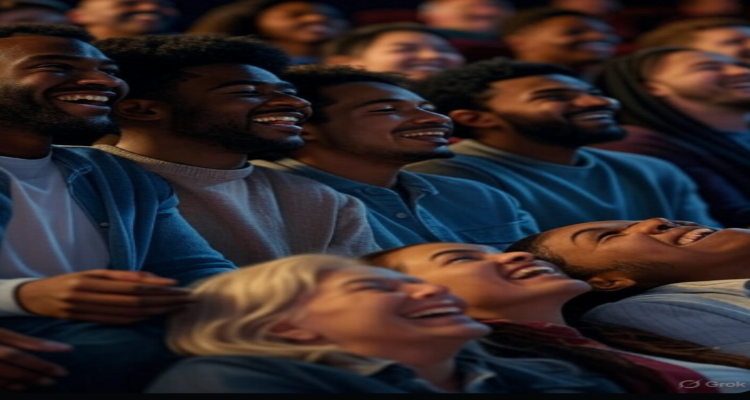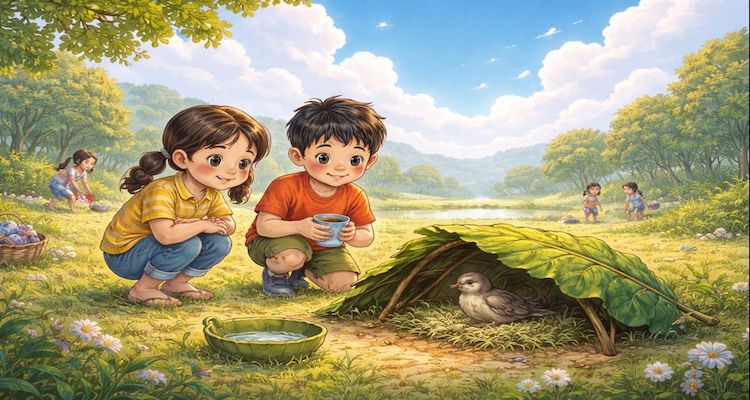Reel to Real: When Movies Mirror Our Lives

When movies reflect real-life events and emotions, they create a powerful connection with audiences. Explore how reel life often mirrors real life, and why it matters.
Introduction: The Unexpected Echo of Cinema
You’re watching a movie—perhaps a scene of loss, love, or a sudden turn of fortune—and suddenly, it feels eerily familiar. It’s not just the actors on screen living that moment; it’s you. Cinema has always had a magical ability to captivate, but some films strike a deeper chord by mirroring our own lives, fears, and dreams. This emotional resonance isn’t accidental—it’s rooted in storytelling’s ancient function: to help us make sense of the world.
Context & Background: Art Imitating Life
For over a century, filmmakers have drawn inspiration from real-world events, cultural movements, and personal struggles. Whether it’s the raw portrayal of mental health in Silver Linings Playbook, the immigrant journey in The Namesake, or the teenage angst of Lady Bird, movies are a reflection of the human experience.
This narrative mirroring isn’t new. Aristotle once said, “Art not only imitates nature but also completes its deficiencies.” In many ways, cinema bridges that gap—where life lacks closure, films often offer one. Where emotions are repressed in daily life, the silver screen gives them voice and visibility.
Main Developments: When Fiction Feels Like Fact
1. Biopics and Historical Dramas
Films like Schindler’s List, Hidden Figures, and The Pursuit of Happyness dramatize real-life stories that might otherwise remain buried in textbooks or memories. These movies humanize data and transform history into living, breathing narratives.
2. Fictional Stories with Real-Life Parallels
Even fictional plots often reflect societal issues. Parasite, the Oscar-winning Korean thriller, was not based on a true story—but its themes of class division and economic struggle resonated globally, especially in the wake of increasing wealth inequality.
3. Pandemic and Post-Traumatic Themes
The COVID-19 pandemic gave rise to films like Songbird and inspired renewed attention to earlier pandemic narratives like Contagion. These stories offered more than entertainment—they became cathartic outlets for a world grappling with loss, uncertainty, and isolation.
Expert Insight and Public Reaction
Dr. Samantha Lin, a cultural psychologist at UCLA, explains: “Movies help us process complex emotions by externalizing them. When we see our struggles onscreen, it validates our feelings and often provides clarity or closure.”
Public reactions mirror this. Twitter is filled with posts like, “I thought I was alone until I watched that scene” or “This film healed something in me.” Platforms like Reddit host threads where people share personal stories of how films helped them confront grief, identity crises, or even career changes.
A recent survey by Nielsen found that 63% of viewers prefer movies with emotional relatability over action or visual effects—a telling sign of changing audience priorities.
Impact & Implications: More Than Just Movies
1. Cinema as Therapy
Many therapists now recommend films as a form of bibliotherapy—a technique called cinematherapy. Watching characters confront similar challenges can encourage patients to reflect and heal.
2. The Rise of Hyper-Real Storytelling
Streaming platforms are also catching on. Shows like BoJack Horseman or This Is Us blend humor with deeply human struggles like addiction, family trauma, and aging. These programs enjoy dedicated fan bases not just for their storytelling, but for their emotional authenticity.
3. Social Influence
Movies have also sparked movements. After the release of Black Panther, there was a notable uptick in Black youth aspiring to roles in STEM fields. Films with relatable characters not only entertain—they empower and inspire.
Conclusion: The Power of Shared Stories
When movies hold up a mirror to our lives, they remind us that we are not alone. In a world that often feels chaotic or disconnected, cinema binds us through shared stories and universal emotions. Whether based on true events or not, films that reflect our lived experience serve as both comfort and compass.
So the next time you cry during a movie, remember—it’s not just the plot tugging at your heart. It’s your own story, reflected back at you, one frame at a time.
Disclaimer:
This article is for informational and editorial purposes only. The psychological or medical perspectives mentioned are not a substitute for professional advice.










